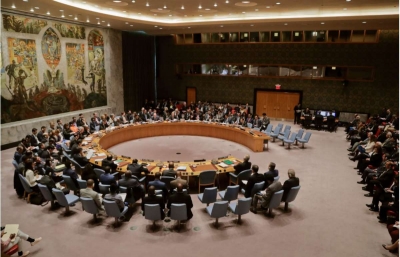
The permanent members of the United Nations Security Council (also known as the Permanent Five, Big Five, or P5) are the five sovereign states to whom the UN Charter of 1945 grants a permanent seat on the UN Security Council: China, France, Russia, the United Kingdom, and the United States.
The permanent members were all allies in World War II (and the victors of that war), and are also all states with nuclear weapons (though not all five had developed nuclear weapons prior to the formation of the United Nations). The remaining 10 members of the council are elected by the General Assembly, giving a total of 15 UN member states. All five permanent members have the power of veto, which enables any one of them to prevent the adoption of any “substantive” draft Council resolution, regardless of its level of international support.
The “power of veto” refers to the veto power wielded solely by the permanent members, enabling them to prevent the adoption of any “substantive” draft Council resolution, regardless of the level of international support for the draft. The veto does not apply to procedural votes, which is significant in that the Security Council’s permanent membership can vote against a “procedural” draft resolution, without necessarily blocking its adoption by the council.
The veto is exercised when any permanent member—the so-called “P5″—casts a “negative” vote on a “substantive” draft resolution. Abstention or absence from the vote by a permanent member does not prevent a draft resolution from being adopted.
Picture Credit : Google

